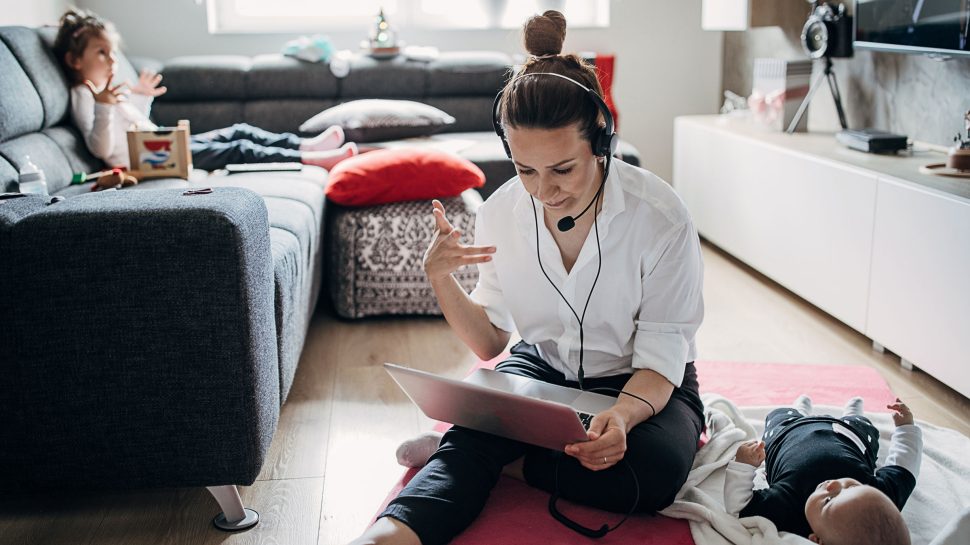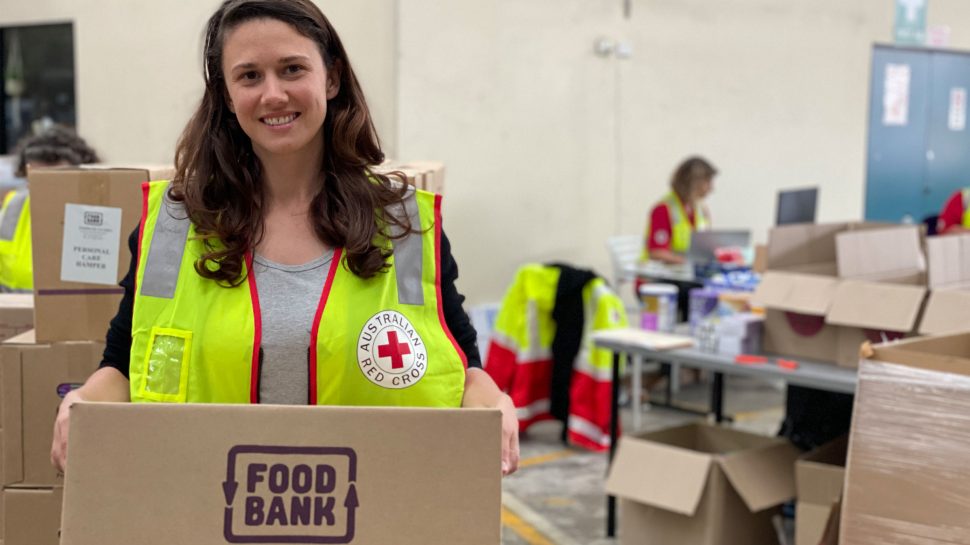Sustainability and supporting people, the economy and the environment
Enterprise and governments play a vital role in advancing global sustainability and supporting small to medium businesses to operate responsibly. As one of the first Australian businesses to embrace the UN Sustainable Development Goals (UN SDGs)1, Australia Post has put a number of initiatives in place to help people, businesses and the planet, thrive.

Key points
- The UN SDGs fall under three key pillars: social, environmental and economic – or people, planet and profit.
- The UN SDGs are a blueprint to rebuild and regenerate economies, communities and the planet.
- Organisations can work in partnership with smaller businesses to help them achieve their sustainability goals.
The essence of sustainability – of ‘meeting the needs of the present without compromising the ability of future generations to meet theirs,’2 has been tested by the impact of COVID-19. It has highlighted the fundamental importance of putting people, and their safety and wellbeing, first3 – but organisations and Governments also need to be able to balance this with economic impacts.
In this way, sustainability is about far more than just packaging and recycled materials.
Sustainable practices address social, environmental and economic needs – or put more simply, people, planet and profit. In April 2020, it was estimated that widespread lockdowns would mean nearly half of the global workforce (1.6 billion people) were at risk of losing their livelihoods4 and result in approximately a US$9 trillion loss to global GDP.5 For employers and governments around the world, there is now a clear need to restore and rebuild our economies, our communities and our planet.
A blueprint for sustainability
The United Nations Sustainable Development Goals (SDGs) are a valuable tool to meet the needs of the present, and guide local and international recovery efforts for the future. Large businesses and governments have a responsibility to work towards meeting these goals.
“UN Sustainable Development Goals are a roadmap for us as a society to develop in a fair and sustainable manner,” says Susan Mizrahi, Chief Sustainability Officer, Australia Post.
“There is an expectation and a need for all actors in society to play a part in achieving these goals.”
The UN SDGs are a blueprint for helping to rebuild and regenerate economies, communities and the planet. They include goals for sustainable cities and communities, responsible consumption and production, good health and wellbeing and industry and infrastructure practices that are inclusive and resilient.
As one of the first Australian companies to embrace the UN SDGs1 in 2016, Australia Post’s approach to sustainability and corporate responsibility is underpinned by these goals, to address economic, social and environmental challenges.
Partnerships for common goals
This commitment to making a positive difference is shared by other Australian businesses. In a new whitepaper developed by Australia Post in collaboration with Banksia Foundation, Small business sustainability in a COVID-19 world, several business owners reveal their aspiration to balance purpose with profit.
“We have to be sustainable because our planet is choking,” explained CEO and Founder of Flora & Fauna Julie Mathers. “So the main driver for me is having a smaller impact on the world, while creating a better planet and society.” She started her business as a ‘platform for purpose’ – consciously sourcing products that are ethical, eco-friendly, organic and vegan.
In 2019, small and medium businesses made up 98 per cent of Australian businesses and contributed over $4 billion to the economy, employing almost half of the nation’s workforce.6 And with a large customer base of small businesses, Australia Post’s services support the growth of businesses like Julie’s – and their communities.
Protecting people and the economy
In the three months of March to May, Australia Post operated for ‘10 weeks like Christmas’, supporting the equivalent of 58,800 full-time jobs around the country.7
Deloitte analysis suggests Australia Post’s commitment to serving its customers and communities facilitated an additional $2.4 billion in eCommerce during the COVID-19 crisis through to June 2020, including $560 million for regional and remote areas across Australia – helping businesses trade at a time when two-thirds of all businesses reported revenue declines.8
Protecting the environment
Sustainable packaging is emerging as a priority for the eCommerce sector. Australia Post’s research found plastic satchels made from recycled content have the lowest environmental impact when compared with compostable and virgin plastic satchels, and cardboard boxes.9
Through partnerships with major fashion retailers,10 Australia Post is helping them live up to the expectations of sustainability-conscious consumers.
100% of Australia Post’s packaging is now recyclable via REDCycle’s soft-plastic drop-off points at supermarkets – something many smaller businesses are also conscious of. “We aim to fully close the loop by purchasing products from Replas, a manufacturer that turns REDcycle materials into a range of recycled products including indoor and outdoor furniture, bollards, and signage” says Jess Crowley, Manager at Bioflex Nutrition.9
These are just a few examples of the impact a sustainable commitment can have on people, the planet and profit. If you’d like to learn more about how businesses are taking responsibility for a sustainable future, download the Small business sustainability in a COVID-19 world whitepaper.
To learn more about how businesses are taking responsibility for a sustainable future, download the small business sustainability in a COVID-19 world whitepaper.
This article is provided for general information purposes only and is not intended to be specific advice for your business needs.
1 UN Sustainable Development Goals, Australia Post website
2 United Nations “Our common future”, 1987
3 United Nations Sustainable Development Goals, Number 3
4 International Labour Organisation, "As job losses escalate, nearly half of global workforce at risk of losing livelihoods”, April 2020
5 International Monetary Fund, “World Economic Outlook, April 2020: The Great Lockdown”, April 2020
6 Australian SMEs and Family Enterprise Ombudsman, “SMEs Counts - SMEs in the Australian economy”, July 2019
7 Uplifting communities: Christine Holgate, CEO Magazine, 10 August 2020
8 Economic assessment of Australia Post’s activities during COVID-19, Deloitte Access Economics, June 2020
9 Small business sustainability in a COVID-19 world, Australia Post, January 2021
10 Country Road to kick off Australia Post push into recycled packaging, The Sydney Morning Herald, August 26 2019



